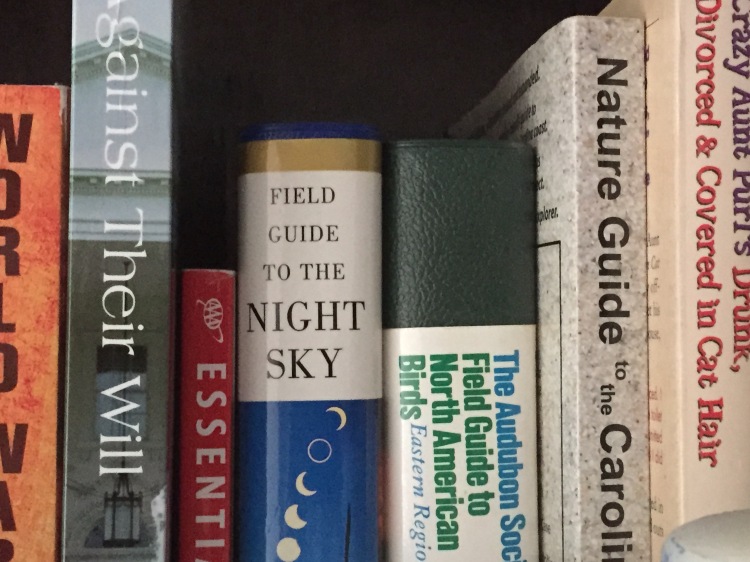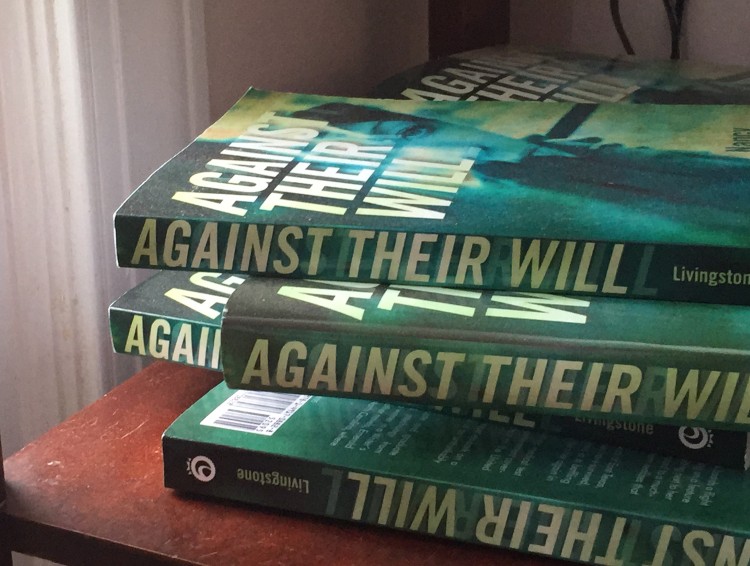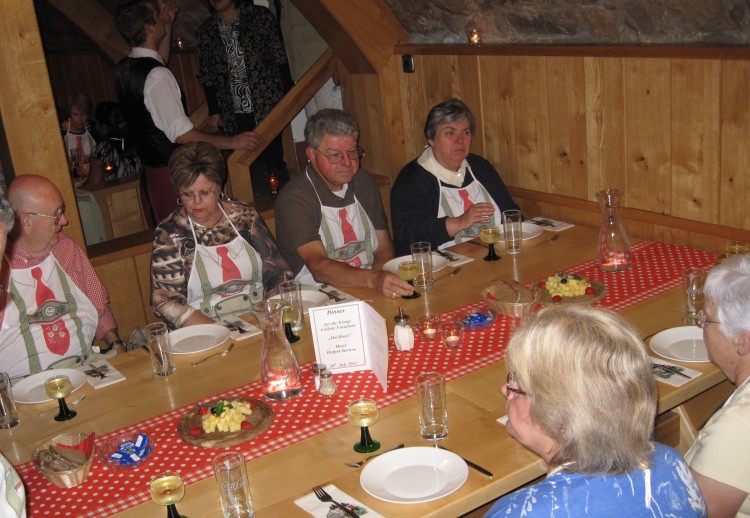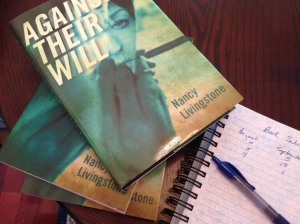Nancy Livingstone
After a few years of chasing other pursuits, mostly just getting through the daily demands of life, I have been blessed to be able to get back to my passion, writing. As my first book, Against Their Will, is getting a new life along with lots of exciting possibilities, I am now pursuing a sequel, currently titled Against Their Will – Global Minds .
In this sequel, the reader will be updated on the characters from the first book and meet a new group of people, all with their own agendas driving them in different directions with one goal, control, of themselves, others, and ultimately, the world.
Since the first ATW book, the main characters, Matt Grayson and Lynn McCane are enjoying the new life they found from their trials and adventures the first time around. As far as they know, there are no fears following them from their past. Matt is courted by Hollywood to sign on for more staring roles, and Lynn has earned a reputation as a hard hitting journalist who goes after the truth, no matter what. What they don’t realize is that brewing beneath the daily news is a huge story, that if enacted will change life on the planet in ways that will affect every individual, rich, poor, healthy or ill that are hard, for those who will be affected, to imagine.
Against Their Will – Global Minds is set on a world stage where powerful and known and some not well-known individuals are making plans for every human being on the planet.
Promises are made that claim this new life will be an utopia, a life of ease and lack of want for anything. And, all of this will be courtesy of an obscure and relatively unknown group of people who claim no one should be denied anything in life due to lack of money or other resources. They make this promise because they have access to hidden resources. This little known group is ready to boldly move forward with their plans. And, an unsuspecting world is cheering them on.
The human genome research that was developed in Against Their Will is still alive and well, but is a closely held secret with only a few select people knowing exactly what and where it is being developed and how it will be deployed.
This sequel begins in North Carolina where a group of physicians and other researchers in nearby Research Triangle Park are working together to bring forward some new treatments using modifications learned from human genome research. They are tapping into the brain power of some of the greatest medical minds in the world. It is this resource of brain power that made this area such an attractive place to move forward with their exploration and ultimate control over the world’s resources.
Let’s meet some of the characters.
Dean McCanter, MD – Dean grew up in eastern North Carolina and finished his undergraduate work at NC State University in biomedical engineering. By the time he earned his Bachelor’s degree at State, he knew that research into new treatments, especially cures, was the ticket to his desire for money and status in life. The only fly in his ointment after gaining his MD degree from the medical school at Duke University, was to be assigned a residency at Rex Hospital in Raleigh; the hospital being part of the UNC Healthcare network. No self-respecting, loyal member of NC State’s Wolfpack would allow such a thing to happen. Grudgingly he accepts the post and conforms to the work demands all the while telling himself it is only temporary. He is offered the position of Chief of the Emergency Department, a position he believes will catapult him to his real desire, making more money while increasing his status in the world. In the interim, he looks for ways to get the debt collectors off his back.
Sky Carver, MD – Sky is a year younger than Dean McCanter and doesn’t come from an affluent family. She grew up believing hard work and doing her best with what she was given was the only way to success. She is not a stranger to hard work, as she worked her way through college, and then attended a lesser known medical school, one in which the tuition was a bit more reasonable. Sky didn’t care the school wasn’t a Harvard or a Yale. She is determined to succeed no matter what. Sky is second in command of the Emergency Department at Rex, under Dean McCanter. Prior to Dean’s promotion to Chief of the ER at Rex, Sky had been told she was to be the next director, just as soon as some things could be put in place. When Dean was named Chief, she was shocked, then filled with anger.
What really gets Sky rolling is the lack of leadership from the newly appointed Chief of the ER, Dean McCanter. It all comes to a head when he’s no where to be found on an evening shift when a massive pile-up on I-40 overwhelms the ER. Sky takes over and manages things, but it only serves to increase her dislike and resentment of the current chief.
Against Their Will – Global Minds, opens on a Friday evening rush hour in Raleigh. After working two shifts in the Rex Hospital ER back to back, Sky is on her way home. Just as she is within a few miles of her apartment, the ER calls and begs her to return. There’s a huge pile-up on I-40 and lots of casualties. Sky turns around, and returns to the ER only to find the it is understaffed and no one knows where chief, Dean McCanter is.
The deluge of patients continues throughout the evening and overnight. Sky does her best to stay afloat with all the demands, but the injuries they’re seeing are severe and some quite puzzling. She struggles to keep things running and despite multiple calls and pages, no one can find Dr. McCanter. What’s worse, a number of those brought in are in extreme pain and exhibiting unusual symptoms, fevers, rashes, disorientation and ultimately coma followed quickly by death.
This post introduces two of the main characters in Against Their Will – Global Minds . In the next post, additional players will be introduced.
Thank you for reading, and as always, comments and thoughts are welcome!










